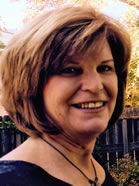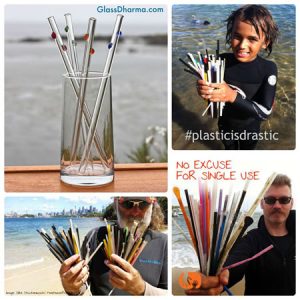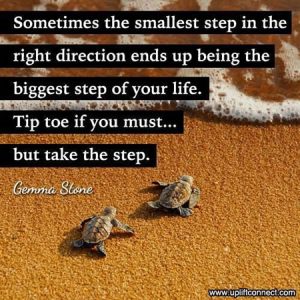 News and images flash before us everyday as we live in a fast paced “media age” where social and practical experiences intermingle with our own education on a daily basis. Everywhere you turn there are new findings on diet, health, toxic chemicals, and our lifestyle choices. Recently, a study was released that declared that there are five trillion pieces of plastic floating around in our oceans that weigh 250,000 tons! The current situation is difficult to think about, and it is even more difficult for each of us to take responsibility for our part in this process. Most people intend to make good choices, but many feel their efforts are lost in the magnitude of these findings.
News and images flash before us everyday as we live in a fast paced “media age” where social and practical experiences intermingle with our own education on a daily basis. Everywhere you turn there are new findings on diet, health, toxic chemicals, and our lifestyle choices. Recently, a study was released that declared that there are five trillion pieces of plastic floating around in our oceans that weigh 250,000 tons! The current situation is difficult to think about, and it is even more difficult for each of us to take responsibility for our part in this process. Most people intend to make good choices, but many feel their efforts are lost in the magnitude of these findings.
Looking around at the examples of healthy lifestyle choices, as we pick and choose what fits our own needs and desires, leads us to a tendency of making judgments about what is “good” for us and what is “bad” for us. The amount of information to sift through can be overwhelming! There is a fine line between the eco-mentor you admire and the person you want to avoid because they seem to have all the answers and perfect solutions. “Eco guilt” rears its ugly head just when you are trying to make a better choice, and all too often, it can be discouraging. Trying to keep up with the “eco hero” can be exhausting and you may be tempted to “throw in the towel” on your own efforts.
Will my actions make a difference?
Useful guilt will guide our conscience toward good choices as in choosing to do dishes instead of opting for disposable tableware. Useless guilt is what makes us avoid the reminders because we feel our actions cannot make a dent in the problem as a whole. It’s easier to stick our heads in the sand, so to speak, or just avoid that person altogether that looks down their nose at our actions and has constant criticisms about our choices.
If we can honor ourselves and each other’s relevant place on the individual eco-journey, then judgments might be reserved for conscious choices rather than a need to “measure up” to another person’s choices. As we eye the different trash can sizes on the curb or notice whose recycle bin is full, we may be inspired by our neighbors who are further along on this path toward being better stewards of our habitat. It might serve us all better if each of us takes a look at how our own actions develop and expand with our own thought processes.
There is an individual train of thought behind each person’s quest to live a planet-friendly lifestyle and each of us is in a different place on the eco journey. Each step is to be honored as part of an ongoing process with the main goal being the direction of the process, not so much the time each of us requires to reach a revelation.
Does a something as small as a straw really matter?
The monumental problems in our environment are overwhelming to say the least, but each small step matters! Identifying our own tendency to slip into “eco guilt” is a first step to honoring all solutions no matter how small they may seem in the bigger picture. We can start with one small, daily used item, like a straw or a water bottle, and find a reusable replacement to the “single use” version. This just may be a bigger “step” than you can acknowledge in the given moment. The ripple effect takes place as someone else notices and admires that new reusable item and the reason you chose it. That one new choice may be a new teaching tool for others.

It starts with me!
It is true that our current trash problems are of greatest proportions, and one person changing a few habits will not reverse the harm this planet is facing. Nevertheless, what if each person took a step in the direction of Planet Care in their decisions of what to use, what to buy, and how to find another purpose for an unwanted item? What if… the bulk of the world’s population shifted their thinking to, “I can change this one daily habit” and examples for others take place… and ideas blossom… solutions shared…? What if?
Learning to notice and learn from others means pushing the guilt-ridden ego aside so that we might try to change habits in a way that will feel authentic and genuine for ourselves. We need not compare with one another in a competitive light. Forming ideas for solutions might be the better goal for each of us.
 As we grow and change, we find new ways of solving these daily issues of living more sustainably. Our youth will notice and learn by our example. We will leave these challenges to them one day; they are the key to the solution. Can we create groundwork by our example to empower our children to take on the challenges we will one day leave for them to solve on their own?
As we grow and change, we find new ways of solving these daily issues of living more sustainably. Our youth will notice and learn by our example. We will leave these challenges to them one day; they are the key to the solution. Can we create groundwork by our example to empower our children to take on the challenges we will one day leave for them to solve on their own?
Finding solutions and learning from each other is a key to a collective directional change. It takes years to change habits and a lifetime to learn as we go. Each ripple is added to the size of a wave. Moreover, each shrinking footprint we leave behind is a legacy of intention toward a healthy Planet.
Author:
Cheryl Newcomb
Community Manager
GlassDharma.com